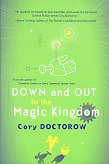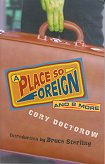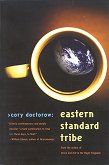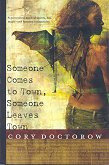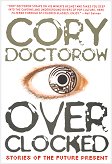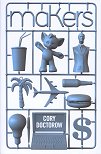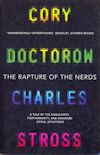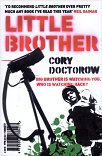What Does The Future Look Like?
Perry and Lester invent things. All sorts of things.
Seashell robots that can make toast. Boogie Woogi Elmo dolls that drive cars.
They also invent an entirely new economic system.
‘New Work’ is a New Deal for the technological era,
and together Perry and Lester transform the country,
with journalist Suzanne Church there to document their progress.
But their success is transient
and the New Work bust puts the dot.com-bomb to shame.
Down but not out, they go back to what they do best – inventing things.
Until a rogue Disney executive grows jealous and convinces
the police that their amazing 3-D printers are being used to run off AK-47s,
at which point things get very dark very quickly…
This brilliantly entertaining and original novel
from the visionary author of Little Brother
fizzes with bold ideas about the future and how technology shapes society.
Perry Gibbons and Lester Banks are “makers”: they invent things by
mashing up, modding, and extending existing tech into new and innovative products.
When Landon Kettlewell, new CEO of Kodacell, employs Perry and Lester,
and asks journalist Suzanne Church to cover their work,
little does she know that this is the beginning of a new era,
for technology, for journalism, and for her.
She documents their highs and lows over the next several decades,
in a world that is changing around them dramatically, and where some big companies
furiously resist that change.
Great stuff.
This near-future tale has all the obvious advocacy of the Maker philosophy,
but it unflinchingly tackles the downsides, too.
Shareholder blindness, corporate malevolence, corrupt police,
geek naivety, short-termism, and personal issues all
stop this from being a wide-eyed utopia. It has a gritty
realism, which makes the underlying optimism plausible.
And, most importantly, it addresses the real problem of 3D printers:
what’s the killer app?
Without that, they are just curiosities and hobbyist kit;
with it, they are ubiquitous.
